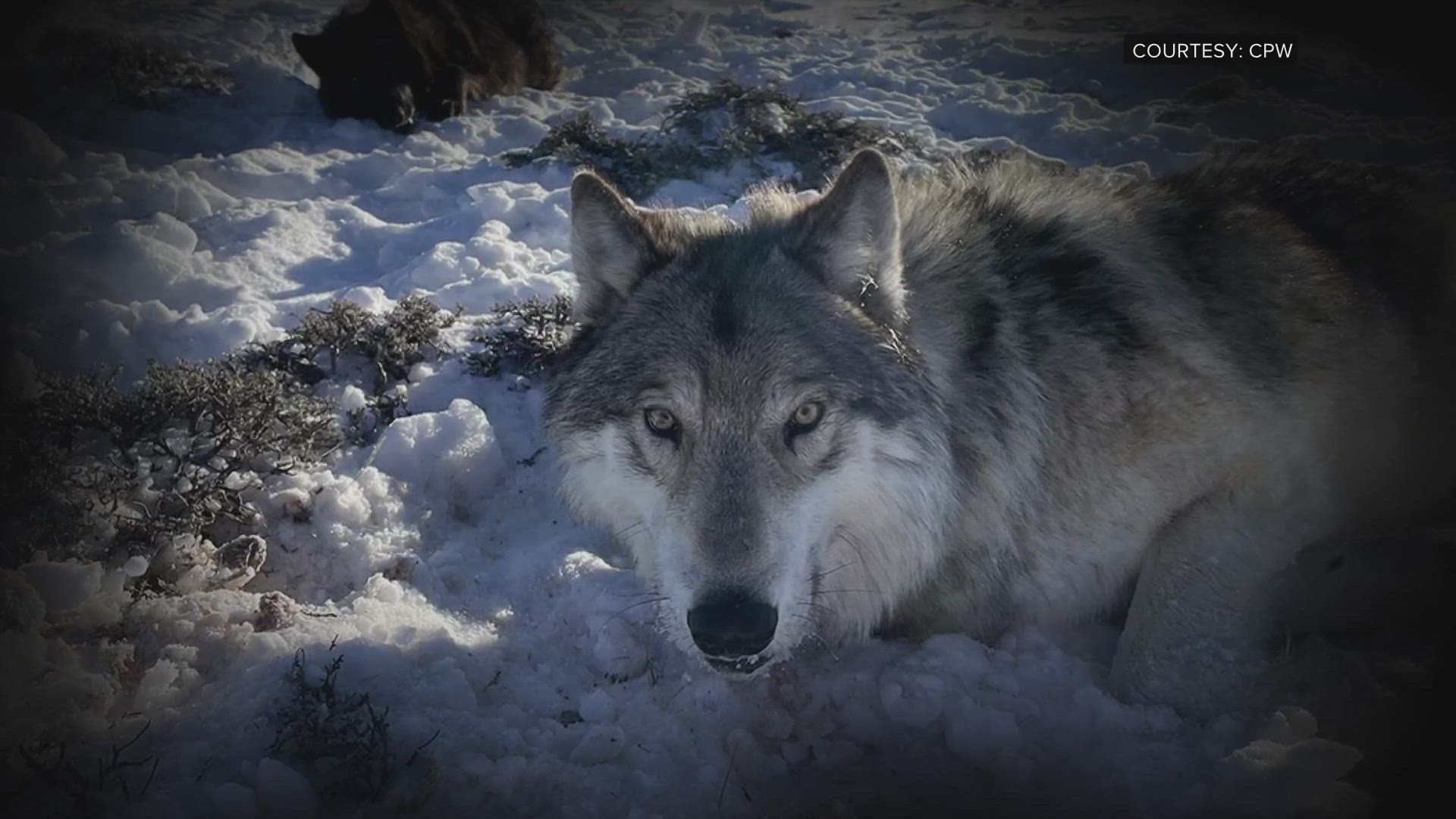DENVER — Gov. Jared Polis on Tuesday vetoed a bill related to the reintroduction of gray wolves.
The bill would have stopped wolves from being reintroduced until the federal government designated wolves in Colorado as experimental, instead of endangered.
The bill "is unnecessary and undermines the voters' intent and the hard work of the Parks and Wildlife Commission," the governor's veto letter said, in part.
The federal rule that would designate Colorado's wolves experimental is called 10(j). If wolves in Colorado remained a federally listed endangered species, then the only scenario where a person could kill a wolf is to save a human life. With 10(j), the state's management plan would allow CPW to issue permits for ranchers to kill a wolf in some situations.
69 out of 100 state legislators voted for the bill, which tied the gray wolf reintroduction to the state receiving a 10(j) rule.
"I couldn't be more disappointed," Sen. Perry Will told 9NEWS after the veto.
Will was one of the bill's main sponsors. He said the bill was meant to be an insurance policy, to make sure 10(j) is in place before wolves get reintroduced.
Will said the governor's veto tells people, "The west slope doesn't matter. Livestock producers don't matter, and science doesn't matter."
Will believed the legislature handed the governor a political win, and he refused it.
"The governor owns it, and he can wear it," Will said.
"I am extremely disappointed that the Governor has vetoed SB23-256," Rep. Meghan Lukens, a Democratic sponsor of the bill, said in a statement. "I have heard from ranchers and farmers consistently that it is absolutely imperative we have the 10(j) rule in place prior to state-orchestrated wolf reintroduction, and this bill was a direct request from Western Slope constituents who will be impacted most by wolf reintroduction."
Will considered the bill an insurance policy for ranchers. The news of the veto disappointed some ranchers.
"I think the governor is missing a very good opportunity to help bridge that rural and urban divide here, because that bill was truly our insurance policy," Janie VanWinkle, a Colorado rancher, said to 9NEWS.
The governor said the bill could harm the federal process.
"The governor shares the desire for Colorado wolves to receive a 10-J designation to allow for maximum state management flexibility. Unfortunately, the legal analysis of this bill is that it would likely delay or even prevent successful 10-J designation, which is why he is vetoing it," a spokesperson for the governor told 9NEWS.
The governor directed the Department of Natural Resources to continue working with the federal government.
The U.S. Fish and Wildlife Service did not tell 9NEWS the bill would affect their process.
"At this time USFWS remains on track to publish a final decision on the 10(j) and associated EIS prior to the end of 2023," a USFWS spokesperson told 9NEWS.
The state plans to reintroduce gray wolves by the end of the year.
The veto makes that harder for VanWinkle.
"It was the assurance that we were going to have the tools that we needed to manage this and to live with this," she said.
Colorado does not yet know where it will get wolves from.
SUGGESTED VIDEOS: Animals and Wildlife

